The Link Between Writing Skills and Academic Success
The Connection Between Writing Skills and Academic Achievement Writing skills are crucial for academic achievement, yet many students face challenges with writing as they advance through their education.

Students who may excel in other subjects often find writing assignments intimidating, but strong writing abilities are vital across all disciplines, not just in language arts. Whether it's crafting essays, compiling reports, or responding to exam questions, writing serves as a means for students to communicate, analyze, and comprehend information more effectively.
For students aged 9 to 14, this period is essential for honing the writing skills that will benefit them throughout middle school, high school, and beyond. Here’s how writing skills correlate with academic success and why it’s important to focus on developing these skills early on.
1. Writing Enables Clear Communication of Ideas
At its essence, writing is a method for conveying ideas clearly and effectively. In school, students are expected to articulate their thoughts and knowledge in writing across various subjects—whether they’re detailing the steps of a math problem, analyzing a historical event, or presenting a science experiment. The ability to write clearly enables students to express their understanding in a structured and coherent way.
-
Written Assessments: Most exams and assessments require written answers. Students who can express their ideas clearly are more likely to earn higher grades because their responses are organized and easy to follow.
-
Presenting Arguments: In subjects like history, social studies, and language arts, students must present arguments and back them up with evidence. Writing skills help them build and communicate strong, logical arguments.
Without strong writing skills, even students who understand the material may struggle to demonstrate their knowledge fully, leading to lower grades.
2. Writing Supports Critical Thinking and Analysis
Writing isn’t just about putting words on paper—it’s an exercise in critical thinking and analysis. To write well, students must be able to process information, analyze it, and present their conclusions. This is particularly important as students move into higher-level subjects where they are expected to analyze complex concepts and provide thoughtful responses.
For example:
-
Essay Writing: Writing an essay requires students to analyze information, structure their thoughts, and present a cohesive argument. This process helps them develop critical thinking skills by learning how to evaluate evidence, make connections between ideas, and draw conclusions.
-
Problem Solving: Even in math and science, writing plays a role in explaining problem-solving processes. By writing out how they solved a problem, students are forced to think through each step, reinforcing their understanding of the material.
In essence, writing helps students organize their thoughts and deepen their understanding of the content they are learning.
3. Writing Enhances Learning and Retention
There’s a strong connection between writing and learning. When students write about what they’ve learned, they process the information in a deeper way. This is because writing requires them to organize their thoughts, summarize key points, and articulate their understanding—all of which help reinforce learning and retention.
-
Note-Taking: Writing effective notes during class helps students retain information and organize key concepts for later review. Studies show that students who take notes by hand retain more information than those who don’t.
-
Reviewing and Summarizing: Writing summaries or explanations of what they’ve learned helps students digest the material and ensures they understand it fully. The act of writing it down helps commit it to memory.
This ability to internalize and retain information is crucial for long-term academic success, especially when it comes to preparing for exams or completing large projects.
4. Writing Develops Organizational Skills
Good writing requires structure. Whether it's a simple paragraph or a detailed research paper, students need to know how to organize their thoughts in a logical sequence. This skill is invaluable not only in writing but in all areas of learning, as it teaches students how to break down complex tasks into manageable parts.
-
Essays and Reports: Writing essays teaches students to structure their ideas into an introduction, body, and conclusion. This organizational skill translates to other academic work, such as projects, presentations, and even studying for exams.
-
Project Planning: Writing out the steps for a project or research assignment helps students organize their time and resources more effectively. Knowing how to approach a task systematically improves their ability to manage schoolwork and meet deadlines.
As students learn how to organize their writing, they also develop better time management and problem-solving skills—critical tools for success in school.
5. Writing Builds Confidence in Academic Abilities
Writing can be intimidating for many students, but as they improve their writing skills, they gain confidence in their academic abilities. When students feel confident in their ability to write clearly and effectively, they are more likely to engage fully in their coursework and participate in class discussions. Confidence in writing spills over into other areas of school life, improving overall academic performance.
-
Increased Participation: When students are confident in their writing, they are more willing to share their work, contribute to group projects, and participate in class discussions. This engagement helps them absorb more from their lessons and collaborate more effectively with peers.
-
Higher Academic Achievement: Confidence in writing translates to confidence in other academic areas, as students are better equipped to tackle written assignments, essays, and exams. This confidence can lead to higher grades and a more positive attitude toward learning.
Confidence is a key driver of academic success, and writing plays an important role in helping students build that confidence.
6. Writing Prepares Students for Future Academic and Career Success
Strong writing skills are essential not only in school but also in higher education and the workplace. As students progress through high school and college, they will face increasingly complex writing assignments, such as research papers, reports, and presentations. In most career fields, the ability to write clearly and professionally is highly valued, whether it's drafting emails, creating reports, or writing proposals.
-
College Applications: College admissions essays are a critical part of the application process. Students with strong writing skills are better positioned to craft compelling essays that reflect their achievements and potential.
-
Career Readiness: Writing is a fundamental skill in most professions. From writing reports and proposals to communicating with clients and colleagues, strong writing skills are necessary for career success. Investing in writing skills early on gives students an advantage as they prepare for life beyond school.
The earlier students build strong writing habits, the better prepared they will be for the demands of higher education and their future careers.

Supercharge Your Sentence
The Ultimate Sentence Starter Cheat Sheet

